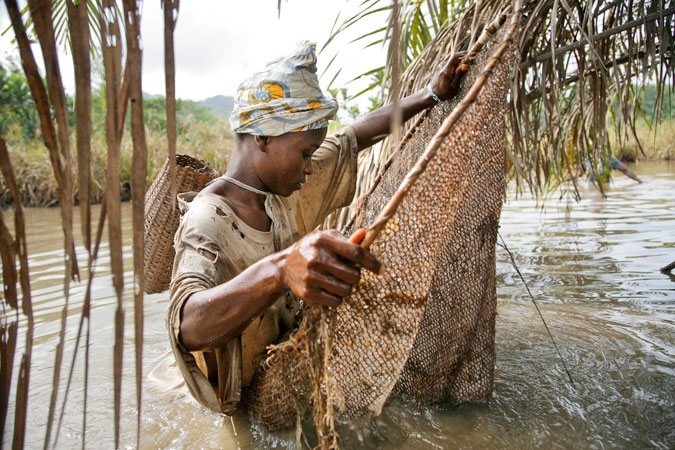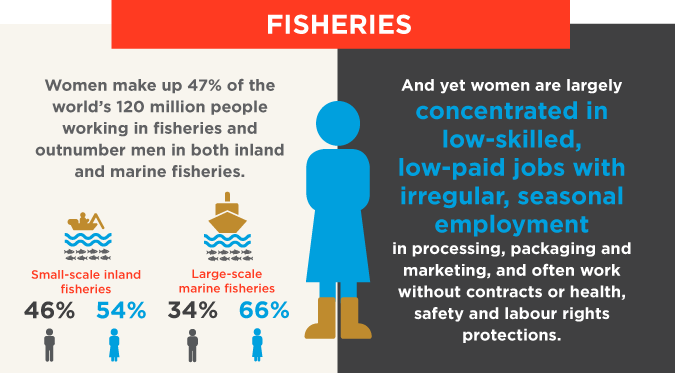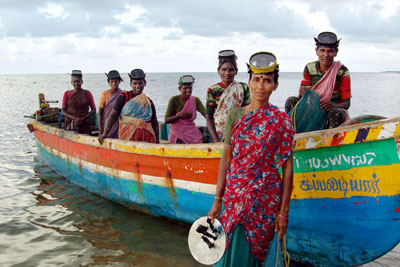SDG 14: Conserve and sustainably use the oceans, seas and marine resources for sustainable development

Targets
- By 2025, prevent and significantly reduce marine pollution of all kinds, in particular from land-based activities, including marine debris and nutrient pollution.
- By 2020, sustainably manage and protect marine and coastal ecosystems to avoid significant adverse impacts, including by strengthening their resilience, and take action for their restoration in order to achieve healthy and productive oceans.
- Minimize and address the impacts of ocean acidification, including through enhanced scientific cooperation at all levels.
- By 2020, effectively regulate harvesting and end overfishing, illegal, unreported and unregulated fishing and destructive fishing practices and implement science-based management plans, in order to restore fish stocks in the shortest time feasible, at least to levels that can produce maximum sustainable yield as determined by their biological characteristics.
- By 2020, conserve at least 10 per cent of coastal and marine areas, consistent with national and international law and based on the best available scientific information.
- By 2020, prohibit certain forms of fisheries subsidies which contribute to overcapacity and overfishing, eliminate subsidies that contribute to illegal, unreported and unregulated fishing and refrain from introducing new such subsidies, recognizing that appropriate and effective special and differential treatment for developing and least developed countries should be an integral part of the World Trade Organization fisheries subsidies negotiation.
- By 2030, increase the economic benefits to Small Island developing States and least developed countries from the sustainable use of marine resources, including through sustainable management of fisheries, aquaculture and tourism.
- Increase scientific knowledge, develop research capacity and transfer marine technology, taking into account the Intergovernmental Oceanographic Commission Criteria and Guidelines on the Transfer of Marine Technology, in order to improve ocean health and to enhance the contribution of marine biodiversity to the development of developing countries, in particular small island developing States and least developed countries.
- Provide access for small-scale artisanal fishers to marine resources and markets.
- Enhance the conservation and sustainable use of oceans and their resources by implementing international law as reflected in UNCLOS, which provides the legal framework for the conservation and sustainable use of oceans and their resources, as recalled in paragraph 158 of The Future We Want.
The world’s oceans—spreading over 70 per cent of the planet—are in crisis. Destructive fishing has decimated fish stocks and thrown marine ecosystems out of balance, as have pollution and ocean acidification. As temperatures warm from climate change, melting ice caps are raising sea levels, threatening homes everywhere.

Over the longer term, oceanic changes can result in globally significant climate shifts. For now, the most immediate impacts are felt in coastal communities and among those who depend on oceans for livelihoods.
Women make up 47 per cent of the world’s 120 million people working in fisheries and outnumber men in both large-scale marine fisheries (66 per cent) and small-scale inland fisheries (54 per cent) [1]. And yet, women are largely concentrated in low-skilled, low-paid jobs with irregular, seasonal employment in processing, packaging and marketing. They often work without contracts or health, safety and labour rights protections. Women also earn approximately 64 per cent of men’s wages for the same work in aquaculture [2].
Women face the risks of ocean degradation with fewer assets and alternatives for livelihoods, and less resilience against the loss of natural resources. All strategies for conservation and sustainable use need to respond to these vulnerabilities. Women’s limited representation in marine science must be corrected towards tapping all perspectives for fair and durable solutions.
Stories
Senegalese rural women strive for the sustainable use of sea resources
UN Women and WFP introduce modern processing technologies to support women in Kafountine committed to repurposing and adding value to fresh fish that would otherwise go to waste.
“Women play a crucial role in marine environments and fisheries economies” — gender and development expert
UN Women interviews Mariette Correa, Senior Programme Coordinator with International Collective in Support of Fishworkers about the challenges women face in the industry, the impact of fish harvesting policies, and how to secure sustainable small-scale fisheries for women’s economic empowerment.
Notes
[1] Food and Agriculture Organization (2013), Good practice policies to eliminate gender inequalities in fish value chains, p. xi.
[2] Ibid

